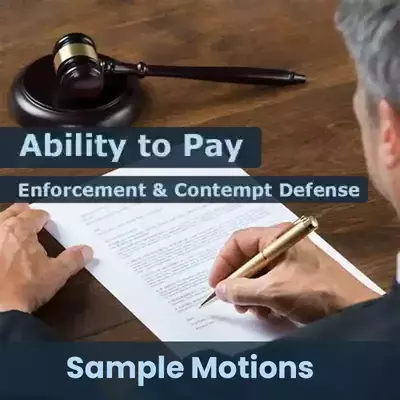TOOL OF THE DAY: Divorce is not a Trigger for Mental Health or Family Studies of any Kind.
CATEGORY: Family Law
Where the state asserts a right to decide the best interests of the child and orders mental health or family studies of any kind, the state violates the Fourth and Fifth Amendment rights of the parents and invades the private protected realm of family life that it is forbidden from. The act of divorce is a proceeding between two married adults and cannot justify an invasion of the private family life between parent and child. These types of studies are in fact open ended fishing expeditions, absolutely prohibited under the Fourth Amendment, designed for no other purpose than to assist a court in determining which parent will have their fundamental rights infringed. To the extent that a parent will suffer deprivations of a fundamental liberty interest as a result of something they said or did during one of these studies, that parent has been compelled to testify against themselves and that testimony was used to punish that parent with loss of a liberty interest. The parent suffers a loss of liberty interests because they have been found, based at least on part because of this study, to be the lesser of two fit parents. To the extent that the loss of liberty is a punishment for a statement or act of that parent it is a punishment and invokes certain criminal level protections including the full depth of Fifth Amendment protection against self-incrimination.
Where the state presumes a right to make best interests determinations for a child over a fit parent, the state deprives that parent of the procedural due process right of a balancing test.
To the extent that the court order for custody/possession deprives one parent of equal possession of the child, the state has in fact seized the child from that parent under Fourth Amendment Seizure standards. As such the custody/possession order can be challenged through a habeas proceeding. Fourth Amendment analysis starts with determining if a seizure has occurred which in the case of custody/possession it has. It is irrelevant to the seizure evaluation who gets the child as a result of the seizure. Even if another parent with fundamental rights to the child gets the child, this post seizure action cannot cure the seizure or make it reasonable. As an analogy, if two people hold equal shares in a company and the company has to be sold and as a result of that sale the state gave one owner more than half of the sales proceeds, would the state have seized one of the owner’s property?
Rogers v. County of San Joaquin, 487 F. 3d 1288 – Court of Appeals, 9th Circuit 2007, Child abuse and neglect are very serious problems. We applaud the efforts of social workers to address these matters and to protect the vulnerable victims of these crimes. “No one can doubt the importance of this goal.” Cf. Mincey v. Arizona, 437 U.S. 385, 393, 98 S.Ct. 2408, 57 L.Ed.2d 290 (1978). However, the rights of families to be free from governmental interference and arbitrary state action are also important. Thus, we must balance, on the one hand, the need to protect children from abuse and neglect and, on the other, the preservation of the essential privacy and liberty interests that families are guaranteed under both the Fourth and Fourteenth Amendments of our Constitution.



























